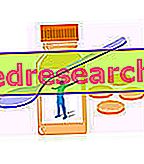Related articles: Caries
Definition
Caries is an infectious-based process that leads to the slow and progressive degradation of the tooth. It is caused by the microorganisms normally present in the mouth, especially those adhering to the surface of the tooth in the form of a bacterial plaque. The metabolism of some plaque bacteria, in fact, releases acidic substances that demineralize the enamel (a protective layer outside the tooth), thus starting the caries process.
Food residues, especially sugars, provide bacteria with nutrients that promote their proliferation, thus increasing the amount of acid produced. Defects on the tooth surface (open cavities in the enamel, fissures and furrows) can predispose the teeth to caries. Even a saliva too acidic pH predisposes to enamel erosion.
Most common symptoms and signs *
- Halitosis
- Sensitive Teeth
- dysgeusia
- Jaw pain
- Pain associated with chewing
- White Teeth on the Teeth
- Toothache
Further indications
Caries initially only affects the enamel and causes no symptoms. If the damage progresses, the caries reaches the underlying layers, penetrating into the dentin up to the pulp (rich in nerve endings) and generating pain. At first, pain can be felt only when hot, cold, sweet and acidic foods and drinks come into contact with the affected tooth; later, pain can occur with simple chewing or percussion. When the pulp is severely involved (pulpitis), the pain can be intense, persistent and radiate to the surrounding tissues.
Diagnosis is based on inspection with dental control instruments and dental radiographs. The treatment of choice consists in the removal of the diseased part of the tooth, followed by the reconstruction with various materials (filling). Fluoride, scrupulous oral hygiene, periodic checks by the dentist and an appropriate diet can prevent tooth decay.



